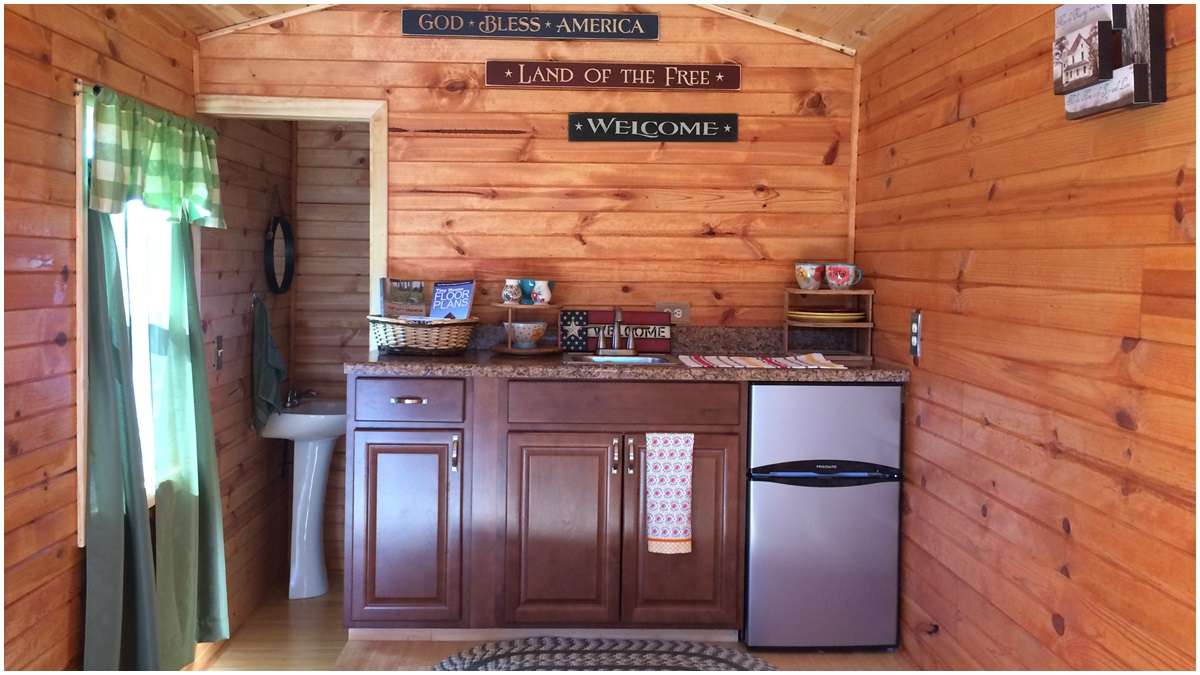Tiny homes for the homeless in Delaware [video]
ListenThe tiny home movement is growing in popularity across the country and two Dover women think tiny homes could be the answer to Delaware’s homeless problem.
Along a busy street in Dover, a 10 by 20 foot tiny home sits in front of a church. With just 200 square feet to work with, there’s not a ton of wiggle room, but there is a living space, kitchen, pull-out bed, bathroom and utilities.
This tiny house and others like it could help make a dent in Delaware’s homeless population.
“There was such a dire need for the next step in the homeless process and getting out of the homeless cycle, and that was affordable housing and the need for somewhere for these folks to be able to transition to after they’ve come out of the shelter,” said Port Hope Delaware co-founder Sue Harris.
Harris and friend Cathi Kopera started the nonprofit in February to provide tiny homes for the homeless, a concept sprouting up across the country. Successful tiny house villages for the homeless have popped up in Nashville, Portland, Seattle, Dallas and the list is growing, Harris said. Both women are all too familiar with the homeless cycle, through their work with the Dover Interfaith Mission, a homeless shelter.
“Housing isn’t the only answer, but without housing there, all the other problems that are solved can fall behind the wayside if you end up back in the street again, so it is a huge part of the puzzle,” Harris said.
Each year the Homeless Planning Council of Delaware conducts a one-night count of the homeless in the state.
In 2015, the nonprofit found 950 people experienced homelessness in Delaware; 151 in Kent County. The following year, the number grew to 1,070 total homeless in the state; 188 in Kent County.
“We can in Delaware really get a handle on this. We’ve got three counties, we can start with Kent County and spread out,” she said.
‘Village of Victory’
Partnering with Victory Church in Dover, the pilot plan calls for 15 tiny houses for 15 people, to start. The micro houses would sit on land donated by the church and be named, “Village of Victory.”
The tiny homes would be single occupancy, meaning only one person per tiny home. Rent would cost about $300 a month, but Harris said someone could also work off the rent in chores around the village, depending on an individual’s circumstances.
Harris estimated that it will cost $12,000 to build each one, with help from volunteers and donated lumber.
“Each one of these units can be built for what it might cost for one hospital stay for pneumonia that a lot of these folks end up in the streets end up with,” said Harris, who envisions gardens, rain catchment systems, solar panels, everything to make the Village of Victory self-sustaining.
Zoning and septic issues have delayed the project for now, but that hasn’t stopped some neighbors from launching a No Tiny Houses movement, posting signs in their yards.
Within a two-mile radius from the church, Harris said there are about 60 homes; 18 of those, she said, have No Tiny Houses signs in their yards.
WHYY tried to get their side of the story by knocking on some of their doors, but the homeowners either refused to speak or did not answer the door.
Pastor Aaron Appling of Victory Church said neighbors are worried about who will be moving in next door.
“They think that we’re going to be bringing in murderers, and rapists and all those things that maybe the stereotype of homeless people are,” Appling said.
But Harris said anyone being considered for the village would undergo a background check and it would be an alcohol and drug free environment.
“We’ll know everything about these guys, we’ll know [who] are the best fits, who will fit into the community situation like this and who will cooperate with each other. Anyone causing trouble will, as they say, be voted off the island.”
Neighbors were also upset that neither Harris nor Appling gave them a heads up beforehand about what they were planning. Harris apologized for that, but said plans were leaked before they were ready to go public.
‘We’re regular people’
Alexis Simms thinks tiny homes for the homeless is a great idea. The 21-year-old is homeless. She is not eligible for a tiny home because she has her 2-year-old daughter and her mom with her, plus a baby on the way. They’re all homeless.
Simms suffers from lupus and recently got out of an abusive relationship. The autoimmune disease robbed Simms of her vision, causes joint pain and damaged her skin.
Appling and Simms have gone through the proper channels to find her an affordable place to live, but to no avail.
“When nothing happened, I said, ‘Hey, I’m going to go buy you an RV and we’ll put you back here in the back of church and you can stay in there until we find you a place,’ and so that’s what we did,” Appling said.
Now the church is in trouble. Kent County issued a zoning violation to Victory Church for setting up a commercial recreational campground. They’re being fined $100 dollars a day.
While a tiny house isn’t an option for Simms, she said homeless people are regular people who want what everyone else wants.
“We’re people, we’re humans. We eat like regular people, we breathe like regular people, we’re regular people. Some people look at us like a disease,” Simms said. “We’re regular people. And just as like everybody else want a warm place to stay, so do we.”
Harris said everyone wants the homeless to take care of themselves. She said the proposed tiny village is her attempt to set up a system so they can.
WHYY is your source for fact-based, in-depth journalism and information. As a nonprofit organization, we rely on financial support from readers like you. Please give today.









